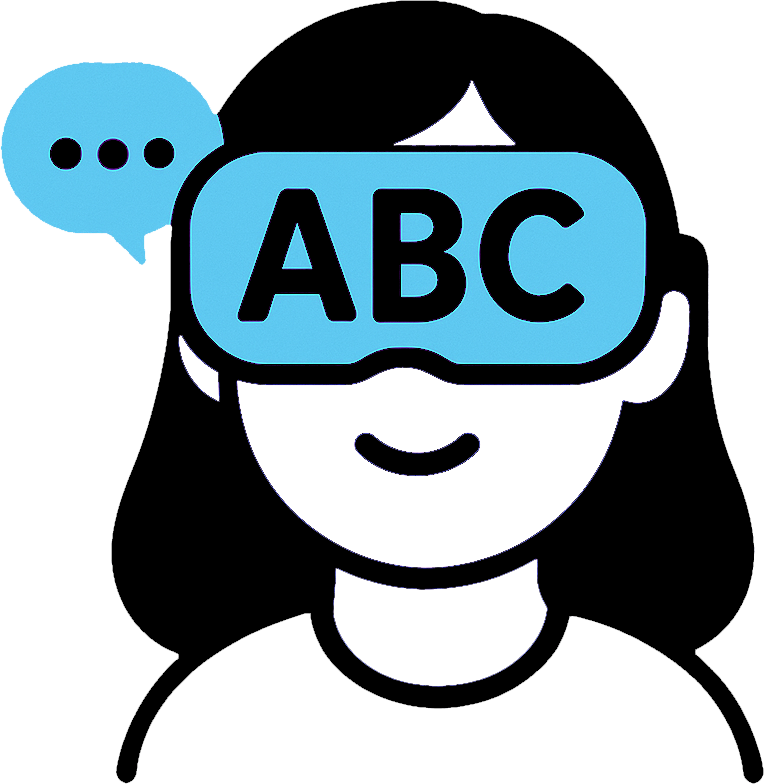REFERENCES
Cai, Z. (2023, December). Construction of immersive learning environment for college English speaking based on virtual reality technology. In 2023 International Conference on Intelligent Computing, Communication & Convergence (ICI3C) (pp. 359–364). IEEE.
Chang, E., Kim, H. T., & Yoo, B. (2020). Virtual reality sickness: A review of causes and measurements. International Journal of Human–Computer Interaction, 36(17), 1658–1682. https://doi.org/10.1080/10447318.2020.1778351
Duong, T., & Suppasetseree, S. (2024). The effects of an artificial intelligence voice chatbot on improving Vietnamese undergraduate students’ English speaking skills. International Journal of Learning, Teaching and Educational Research, 23(3), 293–321. https://doi.org/10.26803/ijlter.23.3.15
Geršak, G., Lu, H., & Guna, J. (2020). Effect of VR technology matureness on VR sickness. Multimedia Tools and Applications, 79(21–22), 14491–14507. https://doi.org/10.1007/s11042-018-6969-2
Jia-Ye, C., Ruo-Fan, W., Cui-Yu, W., Xin-Dong, Y., & Xiao-Zhi, L. (2021). The influence of learners’ cognitive style and testing environment supported by virtual reality on English-speaking learning achievement. Sustainability, 13(21), 11751.
Kaplan-Rakowski, R., & Gruber, A. (2019). Low-immersion versus high-immersion virtual reality: Definitions, classification, and examples with a foreign language focus. In Proceedings of the Innovation in Language Learning International Conference 2019: Florence: Pixel.
Kaplan-Rakowski, R., & Gruber, A. (2019, November). Low-immersion versus high-immersion virtual reality: Definitions, classification, and examples with a foreign language focus. In Conference Proceedings. Innovation in Language Learning 2019.
Laksana, I. P. Y., Virginiya, P. T., & Yuliantini, N. N. (2024). Students’ perceptions on using AI: Factors, benefits, and challenges in influencing their speaking performances. In A. A. N. G. Sapteka et al. (Eds.), Proceedings of the International Conference on Sustainable Green Tourism Applied Science—Social Applied Science 2024 (ICoSTAS-SAS 2024) (Vol. 308, pp. 407–416). Atlantis Press International BV. https://doi.org/10.2991/978-94-6463-622-2_45
Lee, S. M., Wang, X., Park, I., & Lestiono, R. (2024). It feels so real! Situated authentic language learning in immersive virtual reality. Education and Information Technologies, 1–23.
Parmaxi, A. (2023). Virtual reality in language learning: A systematic review and implications for research and practice. Interactive Learning Environments, 31(1), 172–184.
Walstra, K. A., Cronje, J. C., & Vandeyar, T. (2024). A review of virtual reality from primary school teachers’ perspectives.
Wang, C., Lian, X., Zhuang, C., Kwok, P. K., & Yan, M. (2021, May). A virtual reality-based spoken English learning platform. In 2021 IEEE 24th International Conference on Computer Supported Cooperative Work in Design (CSCWD) (pp. 867–872). IEEE.
Wang, Y., & Mughaid, A. (2022). Design of a virtual reality-based learning system for spoken English. International Journal of Emerging Technologies in Learning, 17(24), 25–41.
Yang, F. C. O., Lo, F. Y. R., Hsieh, J. C., & Wu, W. C. V. (2020). Facilitating communicative ability of EFL learners via high-immersion virtual reality. Journal of Educational Technology & Society, 23(1), 30–49.
Yeganeh, L. N., Fenty, N. S., Chen, Y., Simpson, A., & Hatami, M. (2025). The future of education: A multi-layered metaverse classroom model for immersive and inclusive learning. Future Internet, 17(2), 63.
Zou, B., Liviero, S., Ma, Q., Zhang, W., Du, Y., & Xing, P. (2024). Exploring EFL learners’ perceived promise and limitations of using an artificial intelligence speech evaluation system for speaking practice. System, 126, 103497. https://doi.org/10.1016/j.system.2024.103497
